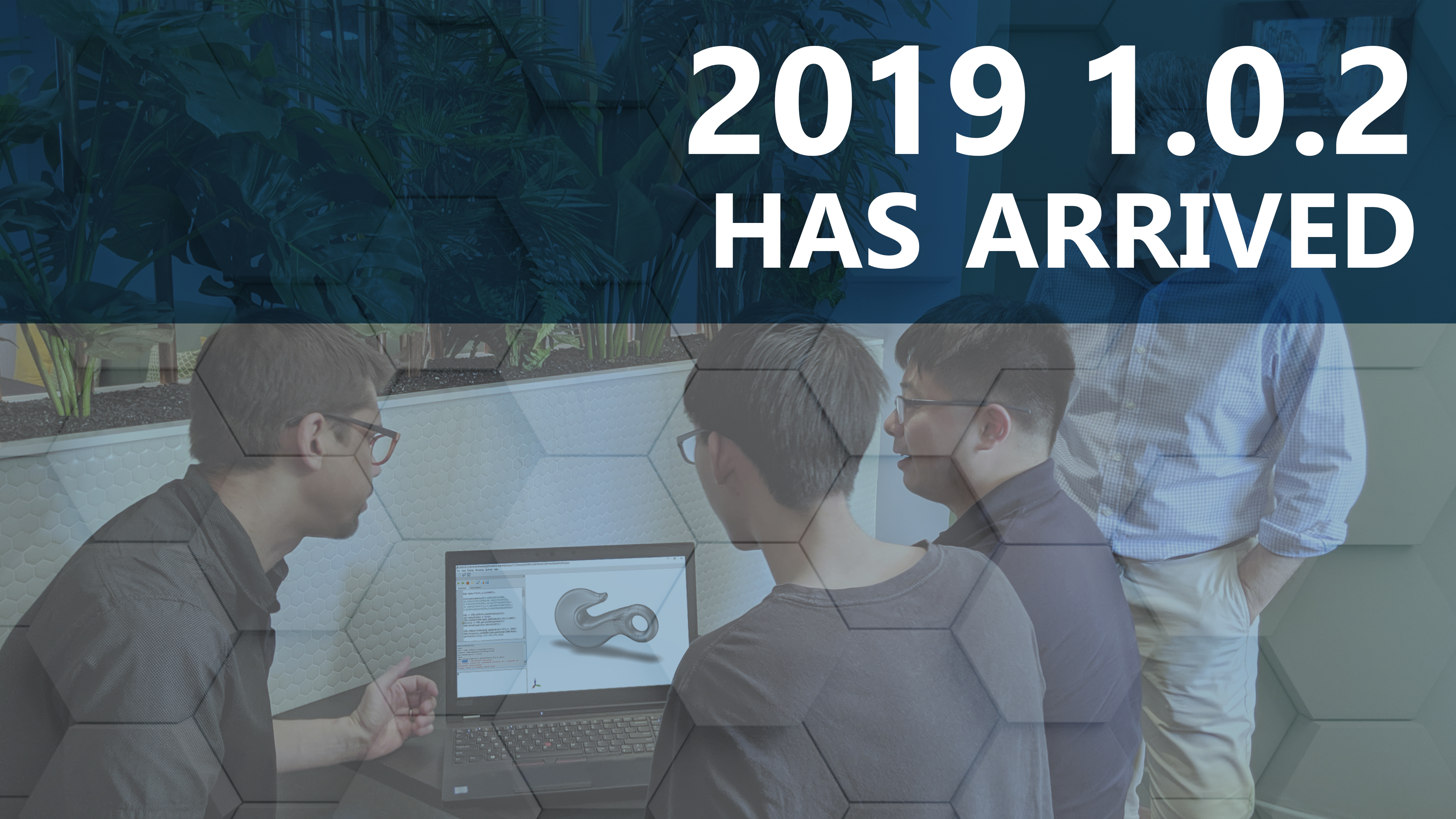2019 1.0.2 IMPROVES MODELING PERFORMANCE AND ENHANCES WORKFLOWS FOR ADDITIVE MANUFACTURING.
Release Highlights:
3D INTEROP
2019 1.0.2 delivers enhancements for 3D InterOp that improve user experience and workflow efficiency:
- Multi-processing is now enabled for UConnect implementations within 3D InterOp CGM, resulting in up to four times better performance when opening/loading large assemblies, with more than half of all files seeing improved load times.
- File format version updates for NX1847, Creo 6.0, Parasolid 31.1, helping applications developers maintain best-in-class interoperability.
CGM CORE MODELER
This release brings new features to the Spatial CGM modeler with added diagnostics on imported model data, improving workflows:
- Diagnostics allow for adaptive workflows, with the addition of an error message catalog with over 10,000 entries for CGM operators. For example, if an offset is attempted on an imported model but fails, the new diagnostics provide user feedback to guide redesign with CGM Direct Edit or to modify offset values.
- This feature also assists in redesign for manufacturability. For example, when imported bodies are united to form an assembly but throws warnings, diagnostics can indicate that the issue was that a tangential configuration was created. The user can then use CGM Direct Edit to correct the issue to generate a manufacturable assembly.
Two other areas also saw improvements:
- Slicing ‒ Enhanced robustness and improved performance when planar slicing, including fail-safes and diagnostics for partial results on poor quality models.
- Healing ‒ Improved memory footprint of healing operator.
3D ACIS MODELER
The 3D ACIS Modeler also sees new features and improvements with 2019 1.0.2:
- The ACIS checker has been enhanced with bounding box diagnostics to identify mismatches between bounding boxes and constituent entities. This improves robustness for operations utilizing bounding boxes, such as Boolean, de-featuring, blending, etc. You can now identify and correct errors with cached bounding boxes, improving success rates.
- Performance for cellular topology operations have been greatly improved over Service Pack 1 by as much as 90% reduction in execution times, which is significant for models with a large number of faces.
- Improved faceting support in quality metrics such as duplicate nodes, tilt, dihedral angle, and others, to create better topological and water-tight meshes for 3D InterOp translated models.
- Slicing includes enhanced robustness and performance improvements when planar slicing, including fail-safes and diagnostics for partial results on poor quality models.
Click here to visit doc.spatial.com for full release notes and product documentation.
###
ABOUT SPATIAL
Spatial Corp, a Dassault Systèmes subsidiary, is the leading provider of 3D software development toolkits for technical applications across a broad range of industries. Spatial 3D modeling, 3D visualization, and CAD translation software development toolkits help application developers deliver market-leading products, maintain focus on core competencies, and reduce time-to-market. For over 30 years, Spatial’s 3D software development toolkits have been adopted by many of the world's most recognized software developers, manufacturers, research institutes, and universities. Headquartered in Broomfield, Colorado, Spatial has offices in the USA, Germany, Japan, China, and the United Kingdom. For more information, visit www.spatial.com.
SPATIAL CORP PRESS CONTACT
Omar-Pierre Soubra
+1 720 445 6627
omar.soubra@3ds.com

